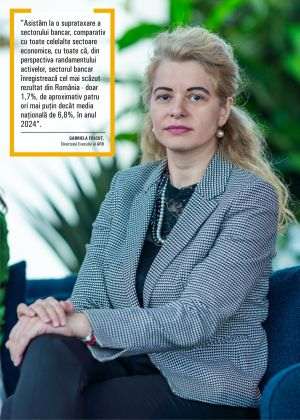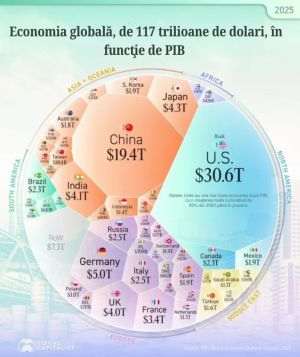The elimination of the special reporting requirements of the FICs to the Bucharest Stock Exchange (BSE) has sparked the concern of some of the BSE investors, who are concerned that the five financial investment companies will be less transparent if no longer required to report transactions greater than 500,000 dollars, the weekly NAV or the monthly portfolio structure.
The managers of the FICs, however, claim that the elimination of these requirements will allow them to compete on a level playing field with their competitors, as they would no longer be required to reveal their investment strategies.
"There"s no reason for anyone to worry over the elimination of these requirements, especially since they are not provided in any law or in any Instruction of the CNVM", said Mihai Fercală, the chairman of SIF "Transilvania", who added: "Market rules should apply to all players equally. Why should my market competitors know my investment strategy? The FICs want to be among the most transparent players, but they do not wish to provide information to their competitors. When I see every issuer report any deals worth more than 500,000 dollars, then we will report ours".
The special reporting requirements for the five financial investment companies were set up in 1999, by the Stock Market Listing Commission, with the BSE requiring the FICs to meet additional transparency requirements compared to the ones set through the legal regime at the time.
At the end of 2010 and in early January 2011, SIF "Moldova", SIF "Transilvania" and SIF "Oltenia" requested that the special reporting requirements of the FICs be reviewed again, claiming that they had a negative impact on the efficiency of their strategies and investment policies.
Tudor Ciurezu, the managing director of SIF "Oltenia", said that there have been cases where some investors speculated the plans of the SIF to invest or to make their exit which were made public due to their obligations to report any deal greater than 500,000 dollars.
"It happened many times that when a SIF wanted to consolidate its stake in a certain company, it would get thwarted, or the stock of the company in question would rise significantly, without any valid reason", Mr. Ciurezu said, and he added: "The reason behind the timing of our request to eliminate the special reporting requirements is the listing on the BSE of the Proprietatea Fund, which is included in the Other Collective Investment Organisms (AOPC) category, which has larger assets than the SIFs, but which wasn"t required to submit the reports that we were".
From now on, the SIFs will still be required to comply with the reporting requirements imposed by the Romanian National Securities Commission to companies of the AOPC segment, such as publishing quarterly reports, bi-annual and annual reports concerning the state of their assets and liabilities and the detailed situation of investments, at the end of the reporting period (the annual and bi-annual reports, and those at the end of the first and third quarters) - as well as monthly reports concerning the NAV value.
Claudiu Doroş, the executive vice-president of SIF "Moldova", considers that there are no reasons for shareholders to be concerned over a reduced transparency of the FICs, now that they will file less reports. He said: "There is no reason for FIC shareholders and investors to worry that they would be less transparent, because we will continue to report according to the requirements of the Romanian National Securities Commission applicable to Other Collective Placement Organisms (AOPC). It was never fair for us to be required to report any deal greater than 500,000 dollars, as we were on the same market with other funds, that did not have to abide by the same requirements. There was a lot of speculation over the interest of SIF2 to take its profit in BRD, we had to report when we sold, but the buyers were not required to do the same thing. It was the same thing in the case of the purchases of Fondul Proprietatea. The special reporting requirements of the BSE and of the Romanian National Securities Commission kept us under constant pressure and we are happy that they were understanding on the harmonization of the community legislation".
Lawyer Cristian Duţescu considers that issuers listed on the BSE should all be treated equally and that imposing or eliminating additional requirements, aside from those provided by the legislation in effect, depends on how opportune they are to the market operator: "In my opinion, in the case of BSE issuers the principle of equality treatment should apply. The FICs should be viewed just as they are defined by the law, namely as (Other Collective Placement Organisms - AOPC). The market operator can decide to impose or to eliminate certain special requirements, aside from those provided by the legislation in effect and the regulations of the CNVM, if it deems it opportune for the protection of investors and for the good functioning of the market".






















































